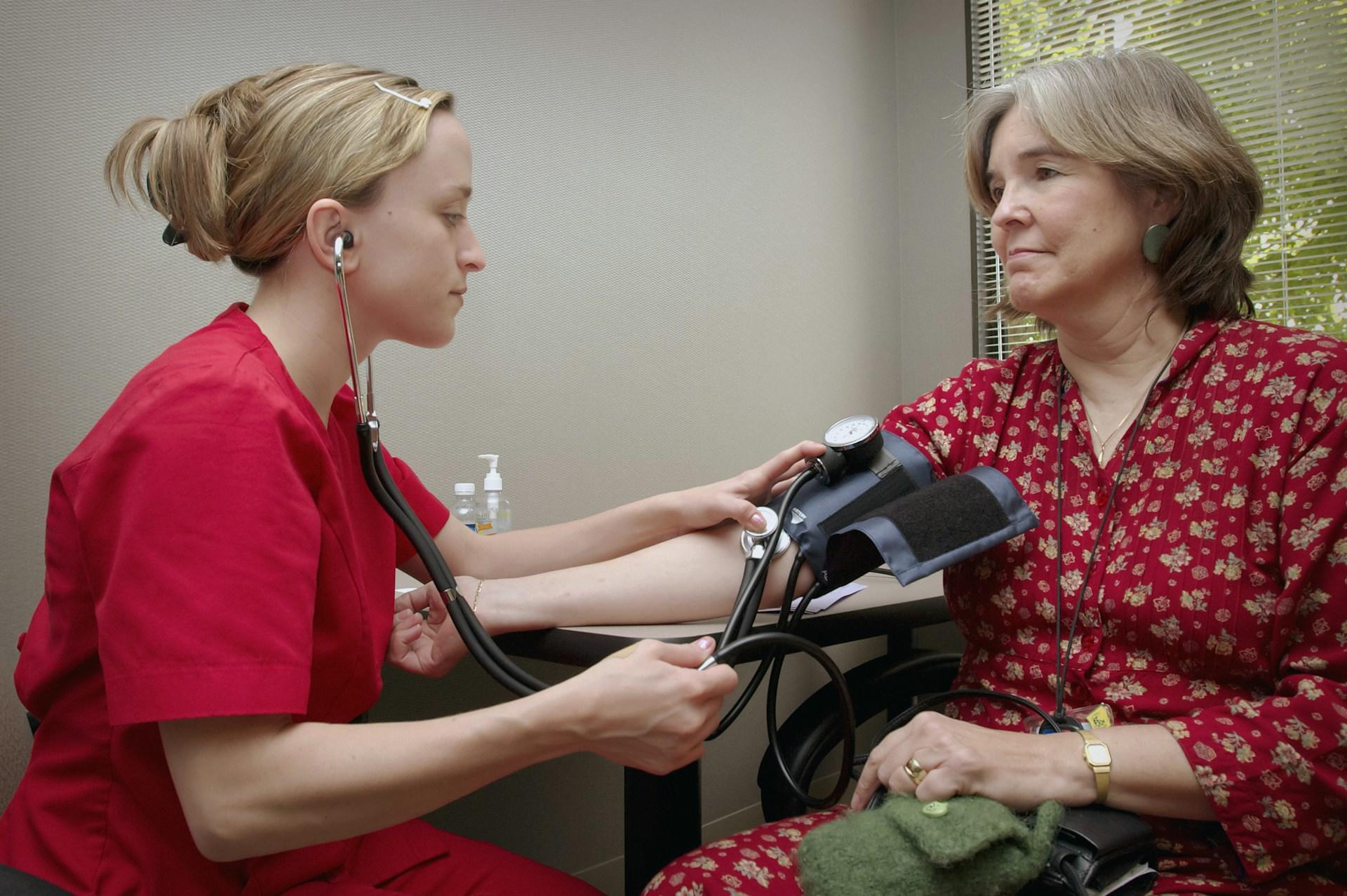Nurses are the heart of healthcare.
– Donna Wilk Cardillo
In order to pursue a nursing career, it is required to obtain licensure. The National Council Licensure Examination, commonly known as NCLEX, is the gateway for aspiring nurses. However, there are two distinct variations of this exam: the NCLEX-RN (Registered Nurse) and the NCLEX-PN (Practical Nurse). Understanding the disparities between these two examinations is important for nursing students, educators, and healthcare institutions.
In this article, we will look into the key differences between the NCLEX-RN and NCLEX-PN exams, shedding light on their unique scopes, requirements, and implications.

Scope of Practice
One of the fundamental distinctions between NCLEX-RN and NCLEX-PN lies in the scope of practice associated with each licensure. Registered Nurses (RNs) are equipped with a broader scope of practice compared to Practical Nurses (PNs). RNs are trained to provide patient care across various healthcare settings, including hospitals, clinics, and community health centers. Their responsibilities encompass assessing patients, developing care plans, administering medications, and coordinating with other healthcare professionals.
The NCLEX-RN is the National Council Licensure Examination for Registered Nurses, a standardized test for those seeking RN licensure. The PN refers to the National Council Licensure Examination for Practical Nurses, designed for licensure as a Practical Nurse.
On the other hand, Practical Nurses (PNs) operate under a more limited scope of practice. They primarily focus on providing basic nursing care under the supervision of RNs or physicians. This may involve tasks such as taking vital signs, assisting with personal hygiene, and administering certain medications. While PNs play a valuable role in healthcare, their scope of practice is typically confined to specific tasks within a healthcare team.
Are you preparing for your NCLEX exam?
Educational Requirements
Another key factor distinguishing the NCLEX-RN from NCLEX-PN exams from each other is the educational pathway required for eligibility. Aspiring RNs typically pursue either an Associate Degree in Nursing (ADN) or a Bachelor of Science in Nursing (BSN) from accredited nursing programs. These programs include a curriculum that integrates theoretical knowledge with clinical practice, preparing students for the complexities of nursing care.
Alternatively, Practical Nurses (PNs) follow a distinct educational path. They usually complete a Practical Nursing Program, which is shorter in duration compared to RN programs. These programs often culminate in a diploma or certificate and focus on providing hands-on training in essential nursing skills. While the educational requirements for PNs are less extensive than those for RNs, they still equip students with the foundational knowledge needed to deliver safe and competent care.

Examination Content
The content of the NCLEX-RN and NCLEX-PN examinations is tailored to reflect the respective scopes of practice for each licensure. Both exams assess candidates' ability to apply nursing knowledge and critical thinking skills in real-world scenarios. However, there are notable differences in the depth and complexity of the content covered.
The NCLEX-RN exam involves a wider range of nursing concepts, including advanced medical-surgical nursing, maternal-child health, pediatric nursing, psychiatric-mental health nursing, and pharmacology. RN candidates are expected to demonstrate proficiency in complex nursing interventions, critical thinking, and decision-making across various patient populations and healthcare settings.
As for the NCLEX-PN exam, it focuses on foundational nursing concepts and basic clinical skills relevant to practical nursing practice. The content is more streamlined and emphasizes essential topics such as basic patient care, medication administration, nutrition, and health promotion. While PNs may also encounter questions on a wide range of nursing topics, the depth of knowledge required is generally less extensive compared to the NCLEX-RN.

Implications for Nursing Practice
The disparities between NCLEX-RN and NCLEX-PN have significant implications for nursing practice and career advancement. Registered Nurses (RNs) have greater opportunities for specialization and advancement in the nursing profession. With their comprehensive education and broader scope of practice, RNs can pursue diverse career pathways, including specialized nursing roles, leadership positions, and advanced practice roles such as Nurse Practitioner or Nurse Educator.
In contrast, Practical Nurses (PNs) typically work in entry-level positions providing direct patient care. While PNs play a vital role in healthcare delivery, their career options may be more limited compared to RNs. However, some PNs choose to advance their education and pursue further licensure as Registered Nurses, thereby expanding their career opportunities and scope of practice.

In summary, understanding the key differences between NCLEX-RN and NCLEX-PN is essential for nursing students, educators, and healthcare professionals. While both examinations serve as gateways to nursing licensure, they represent distinct pathways with unique scopes of practice, educational requirements, and career implications. Whether aspiring to become a Registered Nurse (RN) or a Practical Nurse (PN), individuals must be aware of the specific expectations and responsibilities associated with each licensure. By recognizing these disparities, nursing professionals can make informed decisions about their career paths and contribute effectively to the delivery of quality patient care in diverse healthcare settings.
What Are the Advantages of Choosing the NCLEX-PN Exam?
Even if the path of a Registered Nurse seems to be more beneficial, becoming a Licensed Practical Nurse (LPN), also known as a Licensed Vocational Nurse (LVN) in some states, instead of pursuing the Registered Nurse (RN) route offers its own set of advantages.
One of the primary benefits of becoming an LPN is the relatively shorter duration of education and training compared to becoming an RN. LPN programs typically last around 12 to 18 months, making it a more accessible option for individuals looking to enter the nursing field sooner. This shorter time frame means less financial investment in education and a quicker entry into the workforce.
Additionally, LPNs enjoy a rewarding career with opportunities to make a meaningful difference in patients' lives. They provide direct patient care, such as administering medications, monitoring vital signs, dressing wounds, and assisting with daily activities. This hands-on role allows LPNs to develop strong interpersonal skills and forge deep connections with patients and their families.
Furthermore, LPNs often have more flexibility in their work schedules and settings compared to RNs. They can find employment in various healthcare settings, including hospitals, nursing homes, clinics, and home health agencies. This diversity of opportunities allows LPNs to explore different aspects of nursing and find a work environment that best suits their preferences and lifestyle.
Moreover, LPNs can use their experience and education as a stepping stone to further their career in nursing. Many LPNs choose to pursue additional education to become RNs through LPN-to-RN bridge programs. This pathway allows LPNs to advance their careers while building upon their existing knowledge and skills.
In conclusion, becoming an LPN offers a fulfilling career path with shorter education requirements, diverse job opportunities, and the chance to positively impact patients' lives while laying the foundation for further career advancement in nursing.

What Are the Benefits of Choosing the NCLEX-RN Exam?
The NCLEX-RN (Registered Nurse) exam and the PN (Practical Nurse) exam serve distinct purposes in the nursing profession, custom-built to different levels of nursing practice. Opting for the NCLEX-RN exam offers several advantages over the PN exam. Here are a few benefits!
Firstly, passing the NCLEX-RN exam grants licensure as a Registered Nurse, allowing nursing students to take on a broader scope of nursing practice. RNs can work in various healthcare settings, including hospitals, clinics, and community health centers, and they have more opportunities for career advancement and specialization.
Secondly, RNs typically command higher salaries compared to PN counterparts due to their advanced education and skill set. This financial benefit can be significant over the course of a nursing career.
Thirdly, RNs often have greater autonomy and responsibility in patient care, which can be professionally rewarding. They are involved in more complex decision-making processes and have the opportunity to take on leadership roles within healthcare teams.
In summary, choosing the NCLEX-RN exam over the PN exam offers enhanced career prospects, higher salaries, increased autonomy, as well as opportunities for further specialization within the nursing profession!
Prepare Adequately for Your NCLEX-PN or NCLEX-RN Exam with Superprof’s Qualified Tutors
Superprof, offers a valuable resource for individuals preparing for the NCLEX-RN and NCLEX-PN examinations. With the help of experienced tutors specializing in nursing education, Superprof provides adapted preparatory classes designed to enhance students' understanding of key concepts and boost their confidence for exam day.
For those aspiring to become Registered Nurses (RNs), Superprof offers a selection of tutors with expertise in nursing education and clinical practice. These tutors typically possess advanced degrees in nursing and have extensive experience working in various healthcare settings. They are well-equipped to guide students through the comprehensive curriculum covered in NCLEX-RN preparation, including medical-surgical nursing, maternal-child health, pediatric nursing, psychiatric-mental health nursing, and pharmacology.
Similarly, Superprof offers specialized tutors for individuals preparing for the NCLEX-PN examination. These qualified tutors possess expertise in practical nursing education and have firsthand experience working as Licensed Practical Nurses (LPNs) or Licensed Vocational Nurses (LVNs). They understand the specific content areas and clinical skills assessed on the NCLEX-PN and are committed to helping students navigate the exam with confidence.
Superprof's RN prep tutors employ a variety of teaching methodologies to cater to individual learning styles. Whether through lectures, practice tests, case studies, or simulation exercises, these tutors focus on reinforcing fundamental nursing concepts, developing critical thinking skills, and familiarizing students with the format and structure of the NCLEX-RN exam.
NCLEX-PN prep tutors on Superprof provide targeted classes in essential nursing concepts and clinical competencies, such as basic patient care, medication administration, health promotion, and nutrition. They utilize a range of instructional materials and resources, including textbooks, practice exams, and online simulations, to reinforce learning and facilitate skill development.
NCLEX prep tutors on Superprof provide targeted classes in essential nursing concepts and clinical competencies, such as basic patient care, medication administration, health promotion, and nutrition. They utilize a range of instructional materials and resources, including textbooks, practice exams, and online simulations, to reinforce learning and facilitate skill development. Moreover, they create a supportive learning environment where students feel empowered to ask questions, seek clarification, and engage in active learning. One of the key advantages of Superprof's platform is its flexibility and accessibility.
Students can connect with NCLEX prep tutors remotely, enabling them to schedule classes at their convenience and from the comfort of their own homes. Additionally, Superprof offers affordable pricing options, making NCLEX-RN and NCLEX-PN prep classes accessible to individuals with different financial backgrounds. All in all, Superprof serves as a valuable resource for individuals preparing for the NCLEX-RN and NCLEX-PN examinations. With its network of experienced tutors, personalized instruction, and flexible learning options, Superprof accompanies students in achieving their goals of successfully becoming licensed nurses! Ready?
Summarize with AI:















